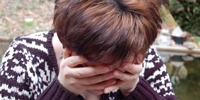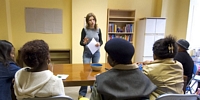|
|
 Acne (1,500) Acne (1,500)
 Addictions (1,500) Addictions (1,500)
 Advice (1,500) Advice (1,500)
 Allergies (1,092) Allergies (1,092)
 Alternative Medicine (1,500) Alternative Medicine (1,500)
 Anti Aging (1,500) Anti Aging (1,500)
 Breakup (1,500) Breakup (1,500)
 Cancer (1,499) Cancer (1,499)
 Dental Care (1,500) Dental Care (1,500)
 Disabilities (1,500) Disabilities (1,500)
 Divorce (1,500) Divorce (1,500)
 Elderly Care (1,498) Elderly Care (1,498)
 Goal Setting (1,500) Goal Setting (1,500)
 Hair Loss (1,500) Hair Loss (1,500)
 Health and Safety (1,497) Health and Safety (1,497)
 Hearing (1,500) Hearing (1,500)
 Law of Attraction (1,499) Law of Attraction (1,499)
 Marriage (1,500) Marriage (1,500)
 Medicine (1,497) Medicine (1,497)
 Meditation (1,499) Meditation (1,499)
 Men's Health (1,500) Men's Health (1,500)
 Mental Health (1,500) Mental Health (1,500)
 Motivational (1,500) Motivational (1,500)
 Nutrition (1,495) Nutrition (1,495)
 Personal Injury (1,499) Personal Injury (1,499)
 Plastic Surgeries (1,500) Plastic Surgeries (1,500)
 Pregnancy (1,496) Pregnancy (1,496)
 Psychology (1,500) Psychology (1,500)
 Public Speaking (1,500) Public Speaking (1,500)
 Quit Smoking (1,500) Quit Smoking (1,500)
 Religion (1,499) Religion (1,499)
 Self Help (1,500) Self Help (1,500)
 Skin Care (1,500) Skin Care (1,500)
 Sleep (1,500) Sleep (1,500)
 Stress Management (1,500) Stress Management (1,500)
 Teenagers (1,492) Teenagers (1,492)
 Time Management (1,500) Time Management (1,500)
 Weddings (1,500) Weddings (1,500)
 Wellness (1,500) Wellness (1,500)
 Women's Health (1,500) Women's Health (1,500)
 Women's Issues (1,500) Women's Issues (1,500)
|
Rosh Hashanah is more commonly known as the Jewish New Year. Literally, it means the "head of the year" or the "first of the year". It is generally observed on the first day of the seventh Hebrew month, known as Tishrei and is also know by many other names. According to The Torah, the Hebrew Bible, it is also known as "The Day of the Blowing of the Shofar"; the rabbinic literature often refers to it as "The Day of the Judgment" and "The Day Of Remembrance". It is also known as "The Feast of the Trumpets". According to the Jewish beliefs, a story goes that God sits upon a throne and review the deeds of all humanity as each person passes in front of Him for evaluation of his or her deeds. There are some differences regarding the date of celebrating Rosh Hashanah. The festival generally extends over the first two days of Tishrei. However, the second day is not mentioned anywhere in the Torah and hence the difference. Orthodox and Conservative Judaism observe both the days while Reconstructionist Judaism and Reform Judaism observes only the first day and does not accept the "oral law". Rosh Hashanah occurs about 162 days after Passover. However, it cannot occur before Fifth of September and later than Fifth of October. The first day of the festival cannot occur on Wednesday, Friday and Sunday as per the constitution of the Hebrew calendar. The celebration of Rosh Hashanah is also rich in its culture. A main characteristic of the festival is actually blowing the Shofar. A shofar is a trumpet made from a Ram's horn. In traditional communities, it is blown every morning for an entire month previous to Rosh Hashanah. It is said that the sound of shofar wakes a person from his or her "slumber". During this time regular prayers known as "selihot" are common and religious poems known as "piyyuttim" are recited. "Shana Tova" which means "A Good Year" is the traditional greeting of Rosh Hashanah. A common custom that is followed in the afternoon of the first day is "tashlikh". Stones or bread crumbs are thrown into flowing water, symbolizing shunning the sins. Foods consumed during Rosh Hashanah also have got their symbolical meanings. Apple and honey is always a part of the food. It represents the wish of a sweet new year. Typically, a blessing will be said over two loaves of bread, known as "challah". The round shape symbolizes a crown, a reminder of the kingship of God. Challah also stands for the circle of life, and the hope that our lives endure without end. However, in spite of it having all the festive characters, Rosh Hashanah is not essentially a New Year Party, like the way it is celebrated in the U.S. or other parts of the world on the night of 31st December. It is rather a time for self-evaluation and prayers. It is a process of spiritual growth when the Jews often visits graves and prays to God. It is a time for charity when they remembers their mistakes and sins from the past and tries to rectify them in the future. Thus the holy festival of Rosh Hashanah does not only include the different aspects of festivity but also invokes a feeling of solemnity in the minds through remembrance of the past.
|
|
|



